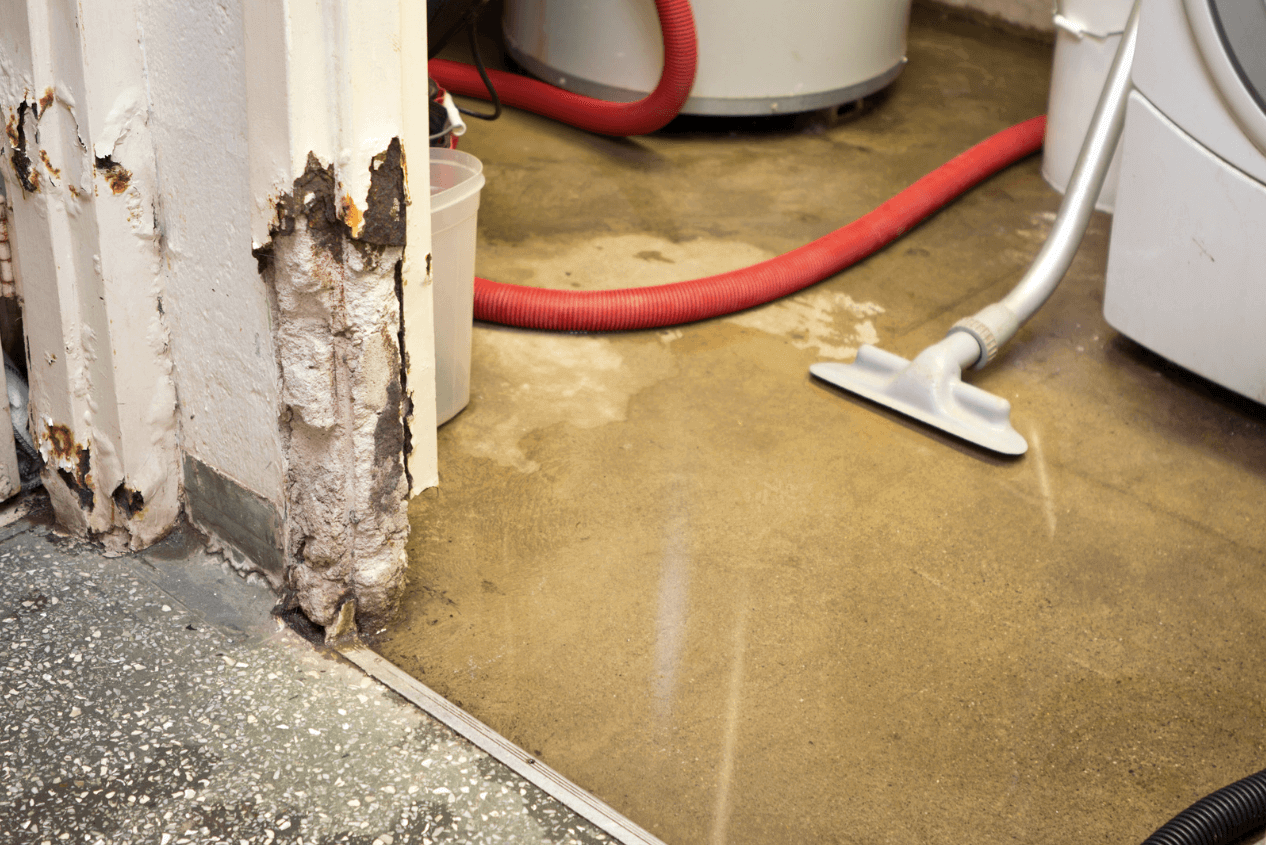Selling a House in a Trust After Death: Everything You Need to Know

A complete guide to understanding trusts, taxes, and selling inherited property quickly
If you're dealing with the loss of a loved one, the last thing you want is a confusing legal process. That's why understanding selling a house in a trust after death is so important. It might sound complicated, but once you break it down, the steps can be easier than you'd expect, especially if you work with a buyer who can help you move quickly and without stress.
In this guide, we'll explain what happens to a house in a trust after someone passes away, who can sell it, and how taxes might work. We'll also touch on something just as important: the tax implications of selling a house in a trust before death, so you know what to expect in different situations.
What Is a Trust, and How Does It Work?
A trust is a legal arrangement used to manage and pass on property, like a house, without needing to go through the court system after someone dies. Think of it like a container that holds assets, such as a home, bank accounts, or investments, so they can be handled more smoothly when the time comes.
The person who creates the trust is called the grantor. They decide which assets go into the trust and who should receive them in the future. The grantor also picks someone they trust to manage everything—this person is called the trustee. If the grantor is still alive, they usually act as their own trustee. But when they pass away, a successor trustee takes over.
The trustee's job is to manage the trust according to the rules set by the grantor. That includes making decisions about the house, like keeping it in the family, renting it out, or selling it.
One of the biggest benefits of using a trust is that it avoids probate, which is the legal process of distributing someone's assets through the court. Probate can take months or even years, and it often comes with court fees, paperwork, and delays. A trust skips that step, making things faster and more private for the family.
Here's a quick example: If someone passes away and their house is listed in a trust, the trustee can step in and take action right away—no court approval needed. That makes selling a house in a trust after death much easier than going through probate.
This is why trusts are such a popular tool in estate planning. They give families more control, reduce legal delays, and make difficult transitions a little bit simpler.
What Happens to the House After the Grantor Dies?
When the grantor passes away, the successor trustee takes charge of everything listed in the trust, including the house. Their responsibilities aren't just about managing property—they also need to carry out the wishes of the grantor and keep the process smooth for the beneficiaries (the people named to receive the assets).
Here's what usually happens:
The trustee locates the trust documents. These include instructions for how to handle each asset, including whether the house should be kept, sold, or transferred to a specific person.
They notify the beneficiaries. Everyone who was named in the trust should be informed of what they're entitled to. This helps keep things clear and avoids confusion.
They pay any outstanding debts or expenses. This might include utility bills, property taxes, or even a mortgage if one is still in place. The house can't be sold or transferred until debts tied to it are settled.
They decide what to do with the house. If the trust says to sell it, the trustee can move forward. If the trust is unclear, the trustee may need to get all beneficiaries to agree before selling.
This is where selling a house in a trust after death becomes especially important. Because trusts don't go through probate, the trustee can often sell the property quickly, sometimes in just a few weeks, depending on the situation.
Can the House Be Sold Right Away?
Yes, if the trust allows it and the title is already in the name of the trust, the trustee can begin the sale process almost immediately.
Do beneficiaries have to agree? Not always. If the trust clearly says the house should be sold, the trustee doesn't need extra approval. But if it's not specific, it's best to have everyone on board to avoid conflict.
What if the house is in bad shape or has tenants? That's where cash buyers come in handy. Everyday Home Buyer, for example, specializes in buying homes "as-is," even with tenants in place. This means no repairs, no cleaning, and no need to ask renters to leave.
What if the house still has a mortgage? The trustee will need to continue making payments until the house is sold. A quick cash sale can help avoid late fees or foreclosure, especially if the estate doesn't have extra funds.
Selling a house through a trust doesn't have to be complicated or stressful. In fact, it's often faster and easier than selling through a will-based estate. When you're dealing with the emotional side of losing a loved one, having a smoother process makes a big difference.
If you're in Florida or Georgia and need help selling a house in a trust after death, a cash buyer like Everyday Home Buyer can guide you every step of the way. We're here to make it easy, fast, and fair, so you can move forward without unnecessary delays or extra costs.
Why Choose a Cash Buyer?
Selling a house the traditional way takes time—listing it, cleaning it, scheduling showings, and waiting for offers. If you're trying to settle things quickly, that can feel like too much. A cash buyer can help you avoid all that hassle.
Here's why it makes sense to sell to a cash buyer:
No need to make repairs, no cleaning or staging, no agent fees or commissions, fast closings (sometimes in as little as a week), and they'll buy homes with tenants still living there.
Everyday Home Buyer works with people in tough or time-sensitive situations. Whether you live nearby or out of state, they can help take the stress off your plate.
What About Taxes?
One of the most common questions people ask is, "Will I have to pay taxes if I sell a house that's in a trust?" It's a smart question—nobody wants a surprise tax bill. Luckily, in most cases, you probably won't owe much, if anything, thanks to something called the stepped-up basis.
So, What's a Stepped-Up Basis?
When someone passes away, the value of their home is "stepped up" to match the fair market value at the time of their death. This is important because it helps reduce, or even eliminate, capital gains taxes when the home is sold.
Here's how it works: Let's say your parents bought their home 30 years ago for $100,000. At the time of their passing, the house is now worth $400,000. That $400,000 becomes the new tax basis.
If you sell the house shortly after for around $400,000 to $410,000, you're only taxed on the gain, not on the difference between what your parents paid and what it sells for now. So in this example, you'd only be taxed on a $10,000 profit, not the full $310,000.
Why Does This Matter?
This tax rule can save you a lot of money. Many people worry that selling a family home means giving a big chunk to the IRS. But because of the stepped-up basis, the actual taxable amount is often very small, especially if you sell the home soon after the person's death.
Keep in mind:
- The stepped-up basis applies to homes in most revocable trusts when the grantor dies.
- If the home is held until long after the date of death and gains value, more taxes may be owed.
- If there are other financial complexities (like rental income, back taxes, or liens), things could get trickier.
This is why it's always smart to check in with a tax advisor or estate planning professional before selling. They can help you figure out exactly what you'll owe, if anything, and make sure you follow all the right steps.
Tax Implications of Selling a House in a Trust Before Death
Now let's look at a slightly different situation: What if the house is sold before the grantor passes away?
This is where things get a little more complex, because the tax implications of selling a house in a trust before death depend on what kind of trust you're working with.
If the House Is in a Revocable Trust
The person who created the trust (the grantor) still has full control of the home. The IRS sees this as no different than if the grantor owned the house outright. The grantor may still qualify for the capital gains exclusion, which allows them to exclude up to $250,000 of profit from taxes if they're single, or $500,000 if they're married and filing jointly (as long as the home was their primary residence for at least two of the past five years).
Example: If the house sells for $500,000, and the grantor originally paid $200,000, they may be able to exclude all $300,000 of gain from capital gains tax if they qualify for the exclusion.
If the House Is in an Irrevocable Trust
Things get trickier. The grantor gives up control of the property. The trust itself becomes the owner of the house. The capital gains exclusion usually doesn't apply. Any profits from the sale may be taxed at trust tax rates, which are often higher than personal rates.
This could lead to a bigger tax bill than if the house had stayed in a revocable trust or was passed on after death. That's why many families wait until after the grantor passes to sell the home.
Bottom line: If you're thinking about selling a home in a trust before the owner passes away, talk to a tax expert first. They'll help you understand what kind of trust you have and what it means for your tax situation.
Can a Beneficiary Keep the House Instead of Selling It?
Yes, in some cases, a beneficiary, or even multiple beneficiaries, may want to keep the house instead of selling it. Whether that's possible depends on a few key things:
What does the trust say? The trust document may clearly state what should happen to the home. If it says to sell and divide the money, the trustee is required to do that. But if the trust allows flexibility, there may be room to keep the home.
Do all beneficiaries agree? If there are multiple beneficiaries, they all need to be on board. If one person wants to keep the house, they may need to buy out the others or compensate them another way.
Can the estate afford to keep the house? Keeping the house means taking on all the responsibilities—mortgage payments, taxes, insurance, and maintenance. The trustee or new owner must be ready to handle those costs.
Is there a mortgage on the property? If there's still a loan, the person keeping the house may need to refinance it or continue payments in the trust's name. Some lenders will work with heirs or trustees during the transition.
Here's an example: Let's say there are three siblings, and the house is the main asset in the trust. One sibling wants to keep it and live there. That person might buy out the other two by paying them their share of the home's value. This way, everyone gets what they're owed, and one person keeps the property.
If everyone agrees and the trust allows it, this kind of arrangement can be a good solution. But again, it's important to review the trust document and possibly work with a legal or financial advisor to make sure everything's done properly.
What If There's a Mortgage on the House?
If the house still has a mortgage, it's the trustee's job to keep up with payments until the home is sold or transferred. Some lenders will allow some time to sort things out, but interest may continue to build.
This is another reason why many trustees choose to sell quickly. Selling to a cash buyer helps avoid missed payments, foreclosure risk, or complicated financial issues for the estate.
Selling a House in a Trust After Death in Florida
If you're in Florida, selling a house in a trust after death can be easier than in some other states. Both states allow for quicker processes when a home is held in a trust.
At Everyday Home Buyer, we work with trustees, heirs, and family members all across Florida and Georgia to help sell inherited homes fast—no repairs, no commissions, and no delays.
Final Thoughts
Dealing with a loved one's passing is never easy, and the last thing you want is a complicated home sale. But with the right help, selling a house in a trust after death can be smooth and stress-free.
If you're looking for a fast, no-hassle sale, whether the house needs repairs, has tenants, or you just want to move on, contact Everyday Home Buyer. We're here to guide you through every step and help you close quickly with no surprises.
Let's make this one thing on your to-do list easier.
Search
Recent Blog
-

The Pros and Cons of a Cash Offer on a House
Jun 11, 2025 -

-

How to Sell a House with Foundation Issues
Jan 08, 2024 -

What Factors Affect the Real Estate Market?
Jan 08, 2024 -

My Property Has Suffered Water Damage, Now What?
Jan 02, 2024
Get a Cash offer on Your House Today
Contact us for a FREE, no-obligation consultation. Everyday Home Buyer simplifies the process!
